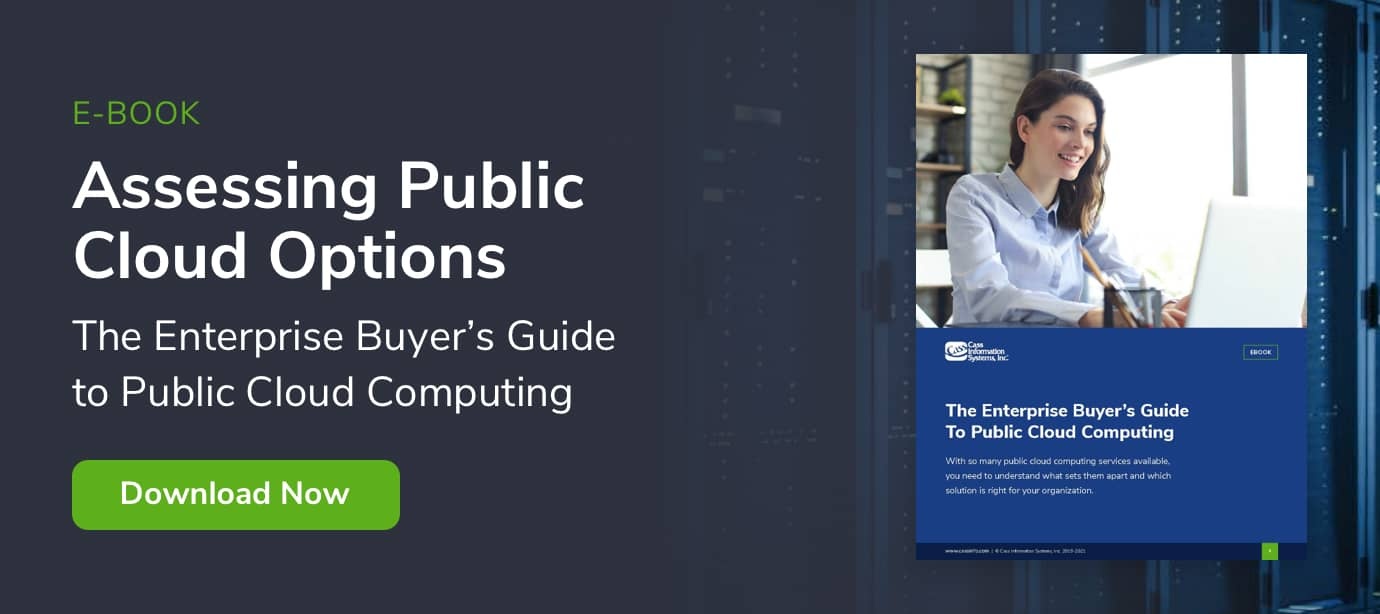Cloud Management not only helps a business to cut unnecessary costs by optimizing the cloud environment, but, when delivered as an effective service, can minimize waste, maximize security, fulfill regulatory requirements, and provide full visibility over infrastructure configurations.
Cloud Management Services
Born out of the disruption of two separate areas: the evolution of expense management services and the rapidly maturing cloud computing arena, Cloud Management Services (CMS) is about managing, optimizing, and securing the cloud environment to minimize risk, reduce spend, and recapture visibility and control. It aims to maximize resource availability, control escalating cloud service costs, and enhance visibility over a more secure environment.
Why is Cloud Management Needed?
For many enterprises, the acquisition and implementation of cloud services is no new phenomenon. Many companies have been utilizing the public cloud successfully to improve the flexibility and scalability of their IT and reduce costs.
But as the influx of cloud services continues to grow unabated, a lack of control and visibility over this environment has become common – particularly when multi-cloud infrastructure is present – raising such questions as:
- Who provisioned each service?
- Who’s paying for them?
- How much has been bought?
- How much is being used?
- Have budget spend thresholds been exceeded?
- What does spend trajectory indicate?
These questions require informed answers and CMS offers a method of finding the answers and a solution to recapture authority over the cloud environment.
How CMS Can Help
Cloud Management Services programs benefit organizations in any – but, ideally, all – of the four following areas:
How CMS Delivers Savings
Savings from Cloud Management Services are delivered via:
- The optimization of resources to eliminate those which are unused or under-used
- The improvement of forecasting to maximize resource utilization
- The examination of persistent workloads and identification of the most suitable payment method
How CMS Improves Visibility
Cloud Management Services improve cloud visibility via:
- The gathering and analysis of usage data in near real-time
- The tracking of detailed consumption-to-budget data
- The showback of spend via detailed reports
How CMS Maximizes Security
Cloud Management Services enhance infrastructure security via:
- The performance of critical, pre-built security best-practice checks
- The near real-time identification and patching of vulnerabilities
- The delivery of comprehensive, actionable information about all threats and risks
How CMS Honors Compliance
Compliance is achieved via Cloud Management Services by:
- The monitoring of cloud resource configurations against relevant regulatory standards
- The availability of regulatory alerts and remediation notes for third-party audits
- The automated plugging of compliance gaps once identified
Who Needs CMS?
Any organization with a public cloud environment – regardless of single vendor or multi-cloud dependencies – can benefit from the added visibility, improved security, simplified compliance, and cost-saving functions of CMS.
However, enterprises who have much larger cloud estates often have significantly more to gain as a result of a CMS program. As goes the general rule: the greater the density of the environment, the greater the number of possible cost-saving avenues to exploit.
What Does Great CMS Look Like?
Truly great CMS helps enterprise organizations to gain visibility into cloud configurations, identify and reduce areas of inefficiency, optimize the resource environment, maximize infrastructure security, meet regulatory compliance, and deliver savings in both cost and time – without the heavy lifting.
However, today most so-called "cloud management" is performed by cloud service providers or those partnered with them, creating a conflict of interest between their services and bottom line, and instilling a sense of unpredictability – can you ever be sure whether they're working in your interests, or simply their own?
To unlock the full value of a CMS program, it must be delivered by an independent provider – one that doesn't partner with CSPs, one that doesn't prioritize bottom line over service, and one that delivers a full end-to-end cloud management service focused exclusively on its customers.
To find the right provider for you, we have produced a comprehensive e-book that highlights the features your next IaaS solution must have.
Topics: Cloud Management Services

